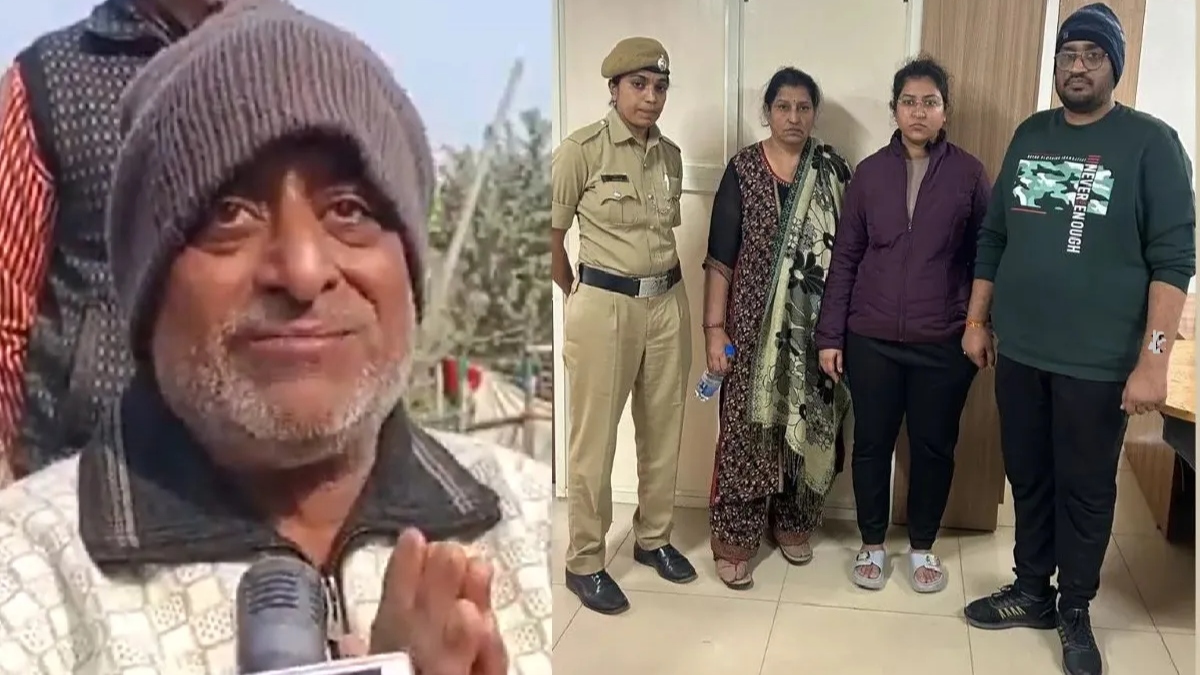 |
|
The tragic death of Atul Subhash, a 34-year-old engineer, has unfolded into a complex legal battle involving accusations of harassment, suicide, and a desperate grandfather's plea for justice and the safe return of his grandson. Atul's death, initially reported as a suicide on December 9th in his Bengaluru home, has taken a dramatic turn with the arrest of his wife, Nikita Singhania, her mother, Nisha Singhania, and her brother, Anurag Singhania. The arrests, made by Bengaluru police, followed a video and suicide note left by Atul detailing alleged continuous harassment and false accusations levied against him by his wife and in-laws, ultimately driving him to take his own life. The subsequent investigation quickly revealed a far more intricate and disturbing narrative, one that has shaken the family and exposed vulnerabilities within the legal system itself.
At the heart of this unfolding drama is Pawan Kumar Modi, Atul's father, who is now grappling with not only the loss of his son but also the uncertain fate of his grandson. In a deeply emotional appeal, Modi expressed his profound concern for his grandson's well-being, stating, “We don’t know where she has kept our grandson. Has he been killed or is he alive? We don’t know anything about him. I want my grandson to be with us.” His words paint a picture of a grandfather consumed by worry and desperation, a feeling amplified by his perception of a flawed justice system. He expressed his frustration, stating, “I thank the police for arresting the accused, but the judge in this case was corrupt. I still haven’t received justice as a new case has been filed against me in my grandson’s name.” This accusation highlights the deep-seated mistrust and disillusionment felt by Modi, a sentiment that is likely shared by many who have navigated the complexities of the Indian legal system.
Modi's despair extends beyond the confines of his immediate family. His plea for help transcends familial boundaries, reaching out to high-profile political figures. He appealed to Prime Minister Narendra Modi, Uttar Pradesh Chief Minister Yogi Adityanath, Bihar Chief Minister Nitish Kumar, and RJD leader Tejashwi Yadav for intervention. The act of seeking assistance from such prominent leaders underscores the gravity of the situation and the perceived lack of avenues for redress within the existing system. His statement, “For a grandfather, his grandson means more than his son. The whole society is standing in my support,” suggests a widespread sympathy for his plight and a growing sense of public outrage over the apparent injustices in the case. This public support might be instrumental in pushing for a thorough and unbiased investigation into Atul’s death and the subsequent events.
The arrests of Nikita, Nisha, and Anurag Singhania mark a significant step in the investigation, but they also raise further questions. Nikita's arrest in Gurugram, Haryana, and her mother and brother's arrests in Prayagraj, Uttar Pradesh, indicate a geographically dispersed network of individuals potentially involved in the alleged harassment. The fact that the accused were brought to Bengaluru and remanded to 14 days of judicial custody suggests a concerted effort by the police to ensure a fair and comprehensive investigation. However, the ongoing legal battles, including the mentioned case filed against Pawan Kumar Modi, highlight the potential for further complications and delays in achieving justice. The case exposes a system fraught with challenges, where the pursuit of justice can be a long and arduous journey fraught with bureaucratic hurdles and potential bias.
The case of Atul Subhash’s death serves as a stark reminder of the devastating consequences of domestic violence and the urgent need for stronger protections for victims. It also sheds light on the struggles faced by those who seek justice within a complex and often overwhelming legal framework. The allegations of harassment, the desperate plea of a grieving father, and the ongoing legal battles paint a grim picture that demands attention and action. As the investigation continues, it is imperative that all involved work towards uncovering the truth, ensuring the safety of the child, and delivering justice for Atul Subhash and his family. The case highlights not only the immediate tragedy but also the broader systemic issues that need to be addressed to prevent similar incidents in the future and to ensure a more responsive and effective legal system for all.
Source: Atul Subhash's father reacts to arrest of daughter-in-law Nikita, seeks custody of grandson
